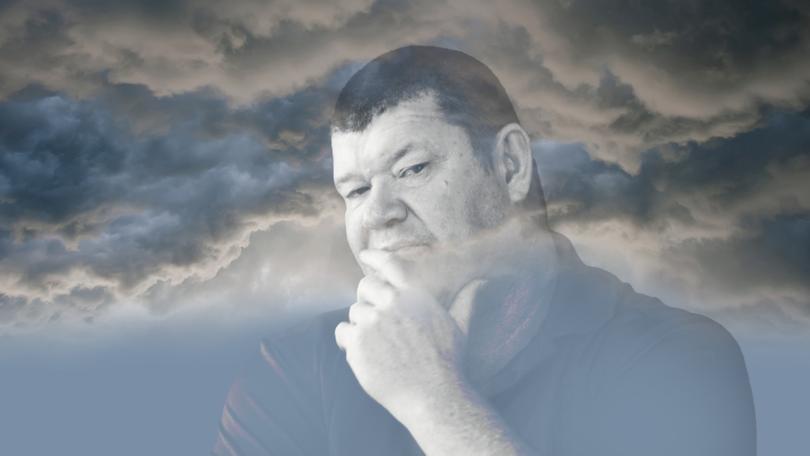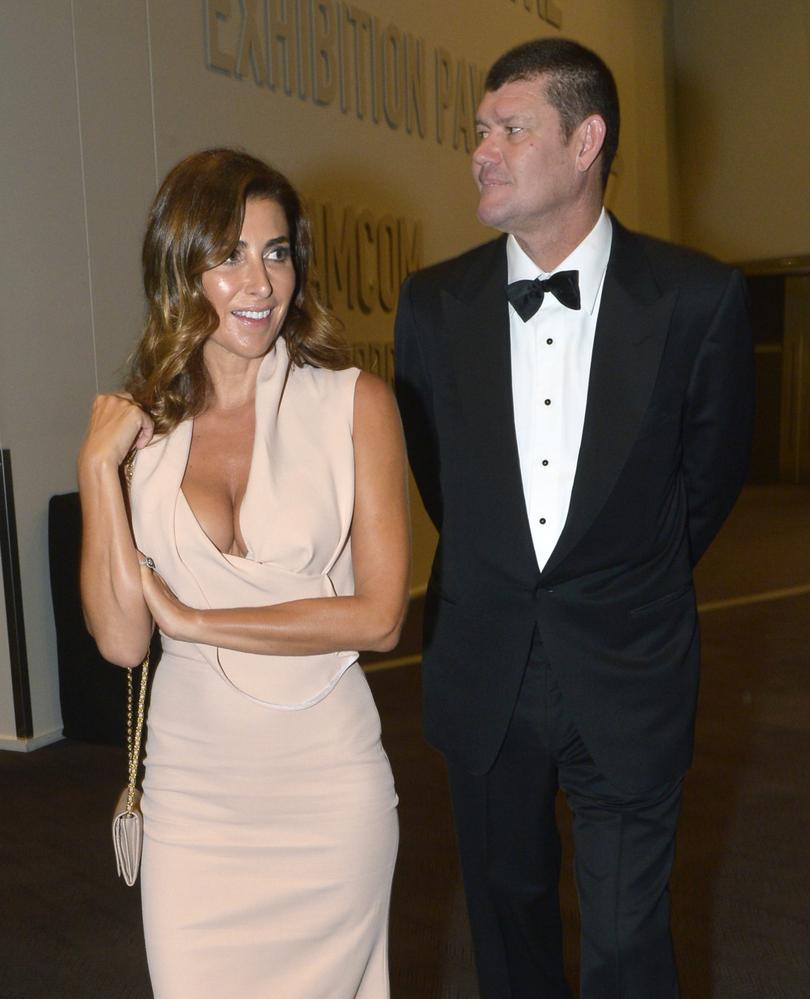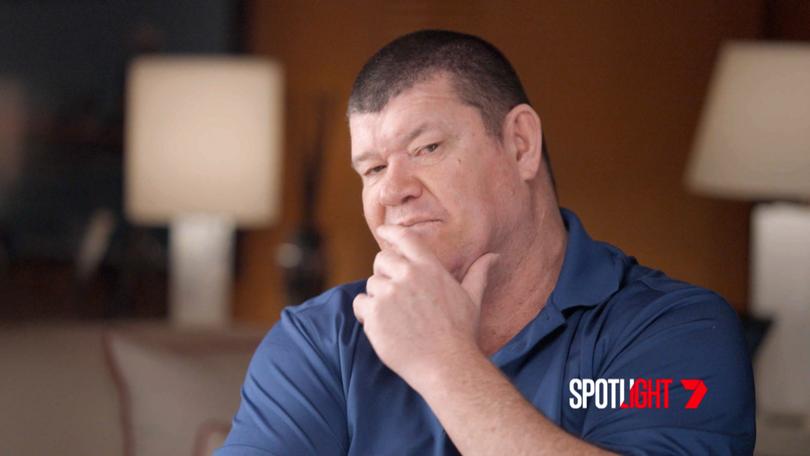JENI O’DOWD: Candid James Packer shows just how far we’ve come in being open about mental health struggles
JENI O’DOWD: Just two decades ago, it would be unthinkable for a high-profile Australian businessman to go public with his mental health struggles.

It was the break-up that captivated Australia. But behind the headlines of James Packer and Jodhi Meares’s marriage breakdown in 2002, there was a deeper story that few saw coming.
It was more than two decades ago, and as the then editor of The Sunday Telegraph, the country’s biggest-selling newspaper, I had a front-row seat to the media frenzy surrounding the pair.
At the time, James Packer was 34 years old and navigating the fallout from One. Tel’s collapse and the end of his marriage. Despite relentless attempts from every major outlet, he refused all interview requests, so I wasn’t expecting much when I sent him a short email asking for a sit-down.
Sign up to The Nightly's newsletters.
Get the first look at the digital newspaper, curated daily stories and breaking headlines delivered to your inbox.
By continuing you agree to our Terms and Privacy Policy.To my surprise, Packer called me directly and agreed to speak — on the condition that I, not one of my staff, conduct the interview.
I still remember walking into his offices overlooking Hyde Park, where I found him unexpectedly warm, charming, and eager to talk, offering me coffee from Starbucks across the road.
Packer candidly discussed both the heartbreak of his split from Jodhi and the intense pressures of his business failures.
My interview produced the iconic headline, “I STILL LOVE JODHI,” which sold out across Sydney’s eastern suburbs, proof of Sydney society’s insatiable appetite for a glimpse behind the curtain of this very private man.
Reflecting on that interview today, I realise how much has changed over the years in the conversation around mental health, particularly among high-profile men like James Packer.
One. Tel’s collapse in May 2001 was a business disaster that was front page news not only in Australia but worldwide. His split with Jodhi was also ferocious fodder for the media.
Yet during our face-to-face chat, there was no mention or even a hint of a breakdown, no outward signs of mental health struggles — just the pain of a very public personal failure.
The only clue he might have been wrestling with something deeper was his refusal to be photographed for the article.
Packer was composed, even charming, as he discussed the pressures that had built up over the past 18 months — the downturn in advertising, One.Tel’s collapse and his father’s illness.

In my interview, published on June 30, 2002, two weeks after the couple publicly announced their separation, Packer said: “My relationship with Jodhi is exceptionally good . . . I regard her in the same vein as I regard my mother and my sister in terms of the most loved women in my life.
“This (our separation) is something that we have to do for both of our sakes now, but hopefully one day — and I don’t want continual speculation whether it will happen or not — but hopefully one day there is a chance we might get back together.”
But behind the composed exterior he presented back then, there was a struggle he would only reveal decades later.
On Sunday, when speaking with veteran journalist Liam Bartlett for 7NEWS Spotlight, Packer described that period of his life as a breaking point, revealing he had been battling severe mental health issues for more than three decades.
“I had a breakdown after One.Tel went broke,” he told Bartlett. “I felt terrible. It’s not only the money: my marriage broke down . . . it was on the front page of the papers every day . . . it felt like the biggest story.”
That vulnerability today contrasts sharply with the stoic facade Packer maintained back then.
It’s a narrative that didn’t exist two decades ago when vulnerability, particularly in powerful men, was often masked behind business bravado. Back then, the focus was solely on his business losses and personal drama.
In hindsight, it’s easy to see how the signs of Packer’s distress could have been overlooked or misunderstood.

Mental health wasn’t part of the public conversation like it is now. High-profile men, especially those as wealthy and powerful as Packer, were expected to be bulletproof.
Nowadays, men are increasingly more willing to open up about mental health. One of Australia’s top celebrity journalists, Jonathan (JMo) Moran, recently started a compelling podcast called Mental As Anyone.
His recent guests include television host Grant Denyer, Silverchair legend Ben Gillies, and former Australian cricket captain Michael Clarke, who all opened up and chatted about their mental health struggles.
Australian television personality Cameron Daddo has launched a new website called My MensTeam. The website encourages men to form teams in their local community where they can talk openly and be accountable to each other.
Radio star Gus Worland is hosting Man Up, a three-part documentary series and social awareness campaign funded by the Movember Foundation.
All these men have bravely pioneered advancements in men’s mental health in this country and made the topic easier to talk about.
Packer’s story is a powerful reminder that even high-profile public figures can face unseen struggles.
His willingness to share his struggles now is more than just a personal revelation — it’s a call to everyone still hiding behind a mask of strength to speak up and seek help. There is no shame in confronting mental health challenges head-on.
Lifeline 13 11 14
beyondblue 1300 224 636
